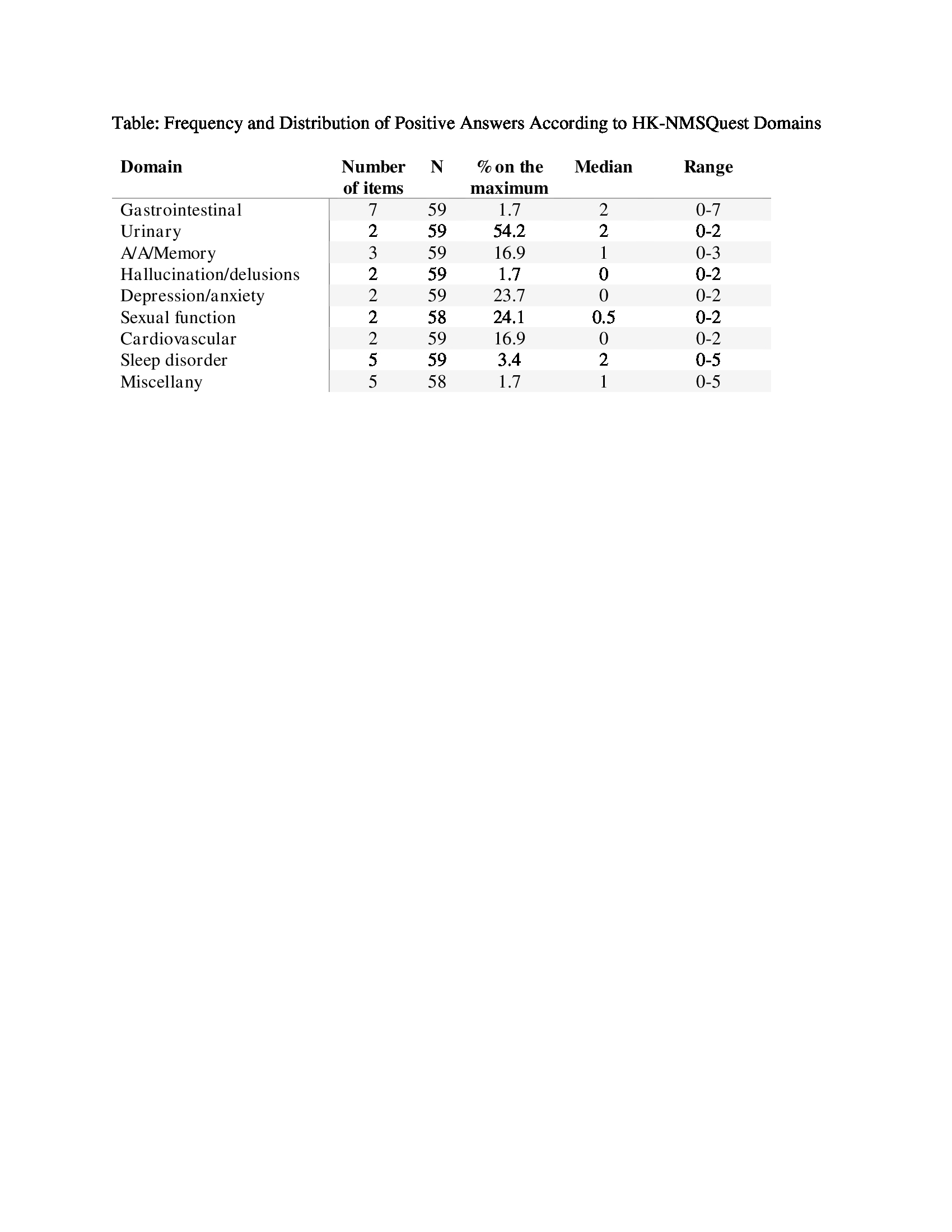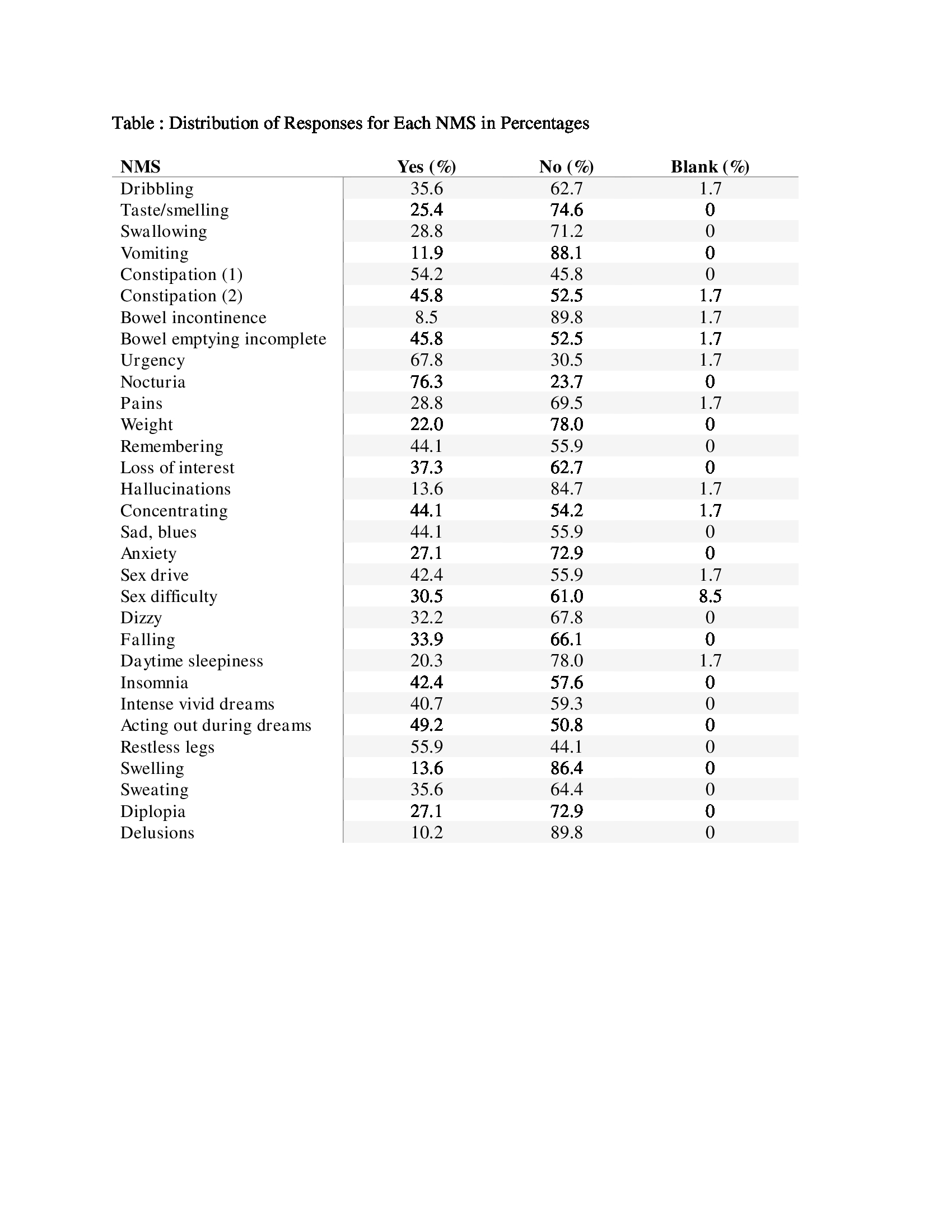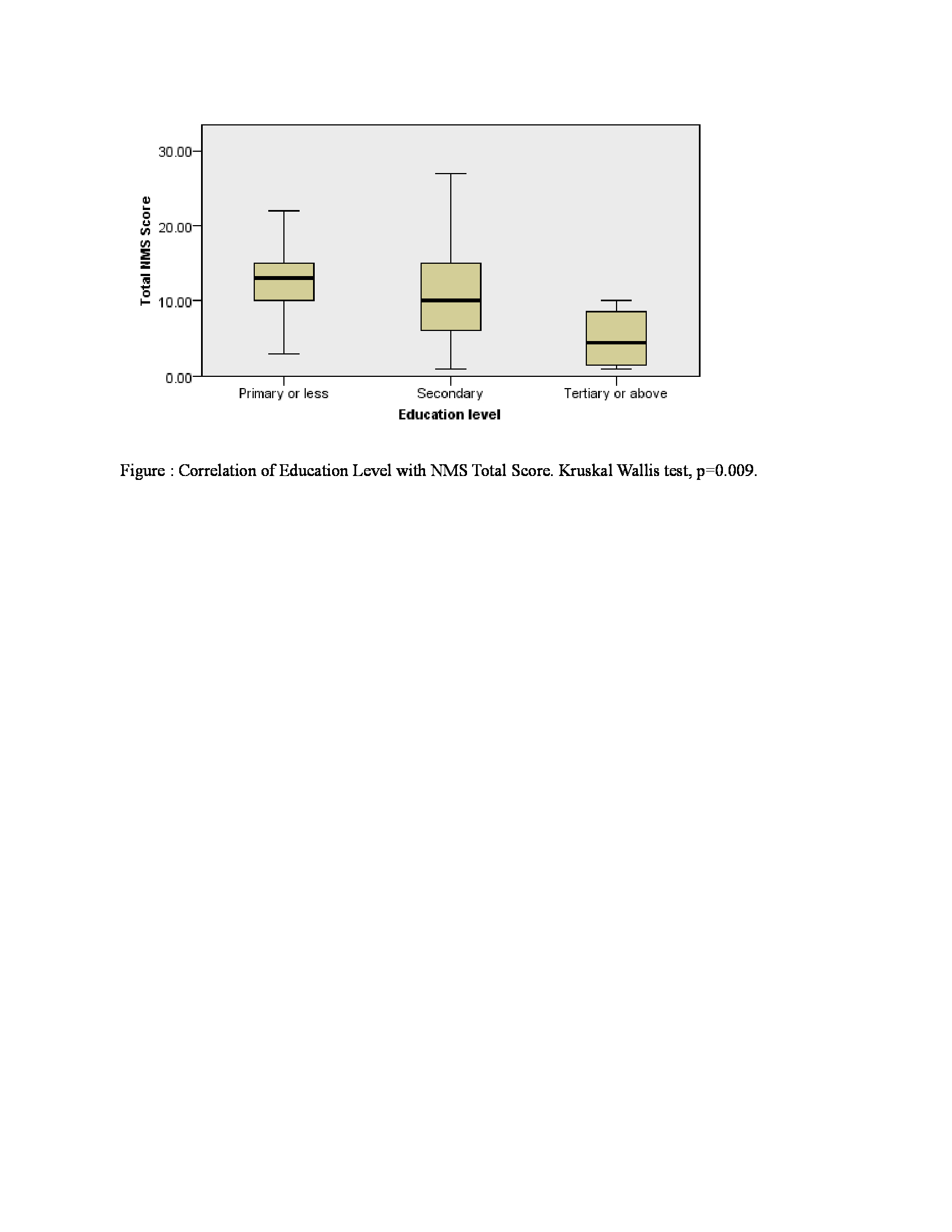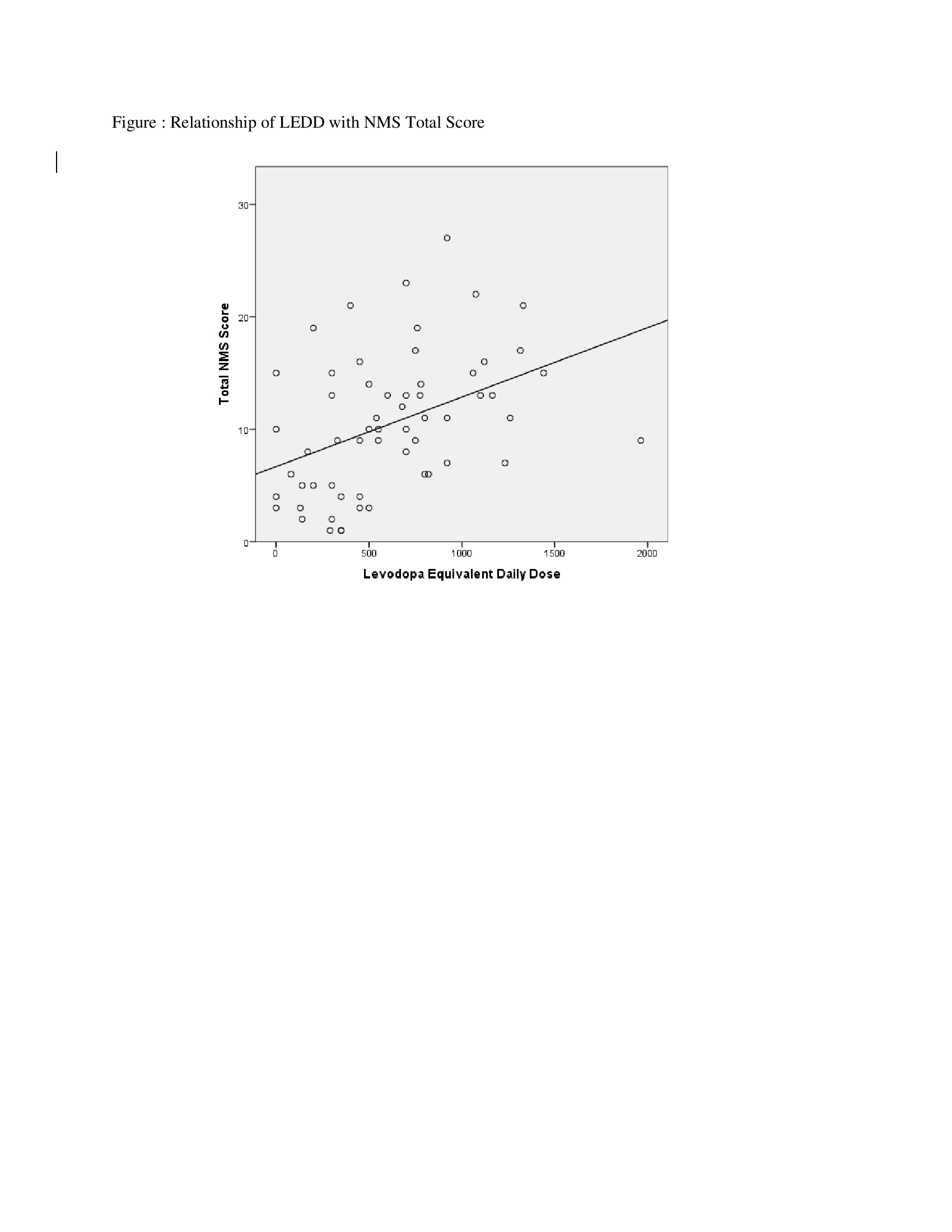Session Information
Date: Monday, October 8, 2018
Session Title: Parkinson's Disease: Non-Motor Symptoms
Session Time: 1:15pm-2:45pm
Location: Hall 3FG
Objective: This study aimed to evaluate the non-motor symptom profiles of Hong Kong Chinese Parkinson’s Disease patients using the newly validated HK-NMSQuest, which is based on the original NMSQuest, a 30-item screening questionnaire developed to assess the spectrum of non-motor symptoms in Parkinson’s Disease patients.
Background: The original Non-motor Symptoms Questionnaire (NMSQuest) was devised in 2006 as a self-administered rapid screening tool to aid early detection of these symptoms. In a previous study, we validated the Hong Kong Chinese version of the NMSQuest (HK-NMSQuest) for use in our local Hong Kong population. It was shown to be a reasonable tool for the systematic and comprehensive assessment of NMS in our Hong Kong Chinese PD patients. This screening tool was put into clinical practice for the first time.
Methods: In this Prevalence Study, a cohort of 59 PD patients was enrolled. They completed the validated HK-NMSQuest. Their NMS profiles including symptom prevalence were examined and correlations with other parameters (including patient demographics, disease duration, motor severity etc.) were drawn. Regression analysis was performed to build a prediction model of NMS total score.
Results: The mean age was 64.2 ± 9.2 years, 59.3% were male, and median disease duration was 9 years (IQR 9 years). The mean age at PD onset was 54.5 ± 10.4 years and their H&Y stages ranged from 0 to 5, with a median of 2 (IQR 2). The median NMSQuest score was 10, all patients reported to have at least one NMS. The most prevalent NMS domain was ‘urinary symptoms’ [Table 1] including nocturia (76.3%) and urgency (67.8%). Bowel incontinence (8.5%) and delusions (10.2%) ranked the lowest [Table 2]. The NMS total score was also found to have significant association with education level (p=0.009) [Figure 1], levodopa equivalent daily dose (LEDD) (rs = 0.476; p<0.001) [Figure 2] and HK-MoCA score (rs = -0.385, p=0.004) [Figure 3]. It was, however, not associated with patient’s age, H&Y stage or disease duration. Multiple linear regression model showed that UPDRS Part 2 (p<0.001), UPDRS Part 3 (p=0.004) and HK-MoCA (p=0.022) scores were independent predictors of NMS total score [Table 3].
Conclusions: NMS were found to be highly prevalent in the Hong Kong Chinese population in our series, regardless of duration and stage of disease. The most prevalent NMS were nocturia and urgency, similar to Western studies. Total NMS was significantly associated with education level, LEDD and HK MoCA scores. This study highlights the need for clinicians to address NMS in all PD patients, regardless of the motor severity or disease duration.
References: 1. K. R. Chaudhuri, P. Martinez-Martin, A. H. Schapira, F. Stocchi, K. Sethi, P. Odin, R. G. Brown, W. Koller, P. Barone, G. MacPhee, L. Kelly, M. Rabey, D. MacMahon, S. Thomas, W. Ondo, D. Rye, A. Forbes, S. Tluk, V. Dhawan, A. Bowron, A. J. Williams, and C. W. Olanow, ‘International Multicenter Pilot Study of the First Comprehensive Self-Completed Nonmotor Symptoms Questionnaire for Parkinson’s Disease: The Nmsquest Study’, Mov Disord, 21 (2006), 916-23. 2. P. Martinez-Martin, A. H. Schapira, F. Stocchi, K. Sethi, P. Odin, G. MacPhee, R. G. Brown, Y. Naidu, L. Clayton, K. Abe, Y. Tsuboi, D. MacMahon, P. Barone, M. Rabey, U. Bonuccelli, A. Forbes, K. Breen, S. Tluk, C. W. Olanow, S. Thomas, D. Rye, A. Hand, A. J. Williams, W. Ondo, and K. R. Chaudhuri, ‘Prevalence of Nonmotor Symptoms in Parkinson’s Disease in an International Setting; Study Using Nonmotor Symptoms Questionnaire in 545 Patients’, Mov Disord, 22 (2007), 1623-9.
To cite this abstract in AMA style:
V. Luk, N. Cheung, WC. Fong, G. Chan, A. Chan, KW. Fong, J. Lo, M. Ismail, J. Li, F. Chan, S. Chan, C. Chau, C. Ho, K.F. Leung, J. Lui, C. Wong, D. Chau, B. Chee, CW. Woo. Evaluation of Non-motor Symptoms of Parkinson’s Disease Patients in a Hong Kong Chinese population using the HK-NMSQuest [abstract]. Mov Disord. 2018; 33 (suppl 2). https://www.mdsabstracts.org/abstract/evaluation-of-non-motor-symptoms-of-parkinsons-disease-patients-in-a-hong-kong-chinese-population-using-the-hk-nmsquest/. Accessed July 1, 2025.« Back to 2018 International Congress
MDS Abstracts - https://www.mdsabstracts.org/abstract/evaluation-of-non-motor-symptoms-of-parkinsons-disease-patients-in-a-hong-kong-chinese-population-using-the-hk-nmsquest/




